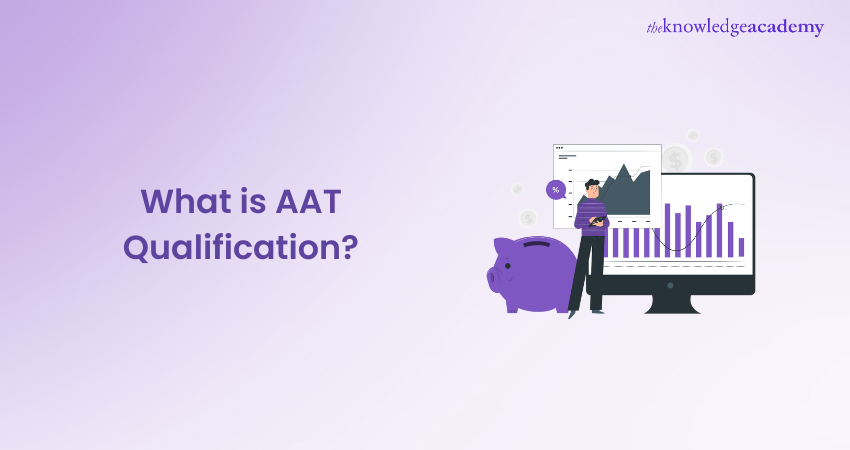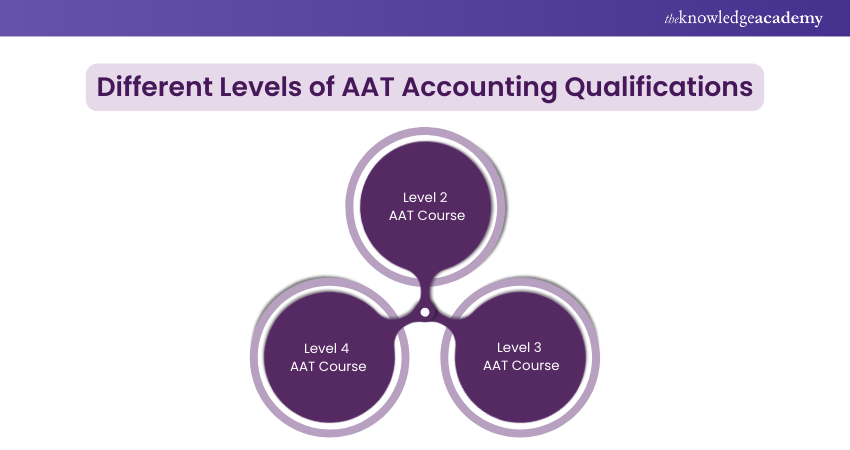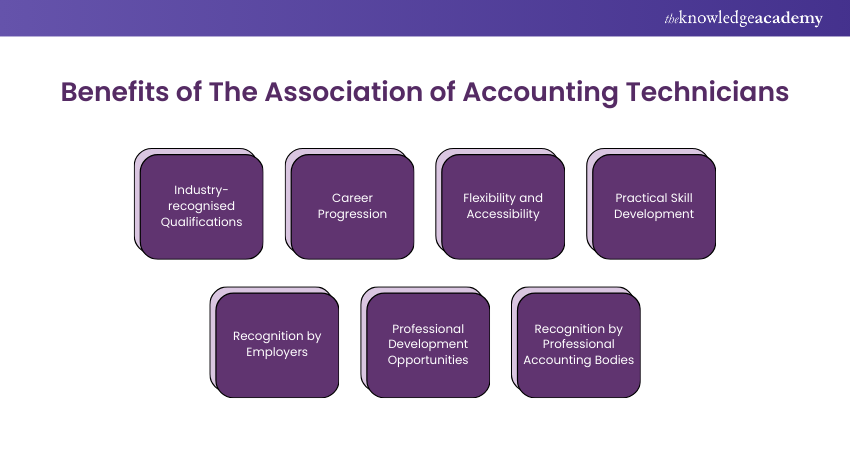We may not have the course you’re looking for. If you enquire or give us a call on +36 18508731 and speak to our training experts, we may still be able to help with your training requirements.
Training Outcomes Within Your Budget!
We ensure quality, budget-alignment, and timely delivery by our expert instructors.

Curious about what can elevate your career in Bookkeeping and Financial Management? Look no further than the AAT Qualification! If you're not familiar with AAT yet, don't worry. We've got you covered.
AAT is a qualification that is recognised worldwide. It equips you with the practical skills needed for a successful career in accounting. If you want to move up in your current accounting job, an AAT Qualification can be a great choice.
On the other hand, if you're looking to start a new career as an accountant with no prior experience, the AAT Qualification can set you on the right path. Ready to learn more about What is AAT and how can it benefit you? Read this blog.
Table of Contents
1) What is AAT?
2) Why do I Need AAT?
3) What are the Different Levels of AAT Accounting Qualifications?
4) What are the Major Benefits of The Association of Accounting Technicians?
5) Progression Opportunities After AAT Level 4 Qualification
6) How AAT Assessments Take Place?
7) How Much can I Earn Once AAT Qualified?
8) Conclusion
What is AAT?
The Association of Accounting Technicians (AAT) is the UK's top professional membership organisation for accounting staff. It has more than 124,000 members in 105 countries around the world. AAT is backed by four prominent UK chartered accountancy bodies: CIPFA, ICAEW, CIMA, and ICAS.
Why do I Need AAT?
The AAT Accounting Qualification is highly respected in the financial industry. It provides students with the practical skills needed for a career in finance.
AAT Qualifications are recognised worldwide. They are often seen as prerequisites for many accounting positions. You can study them regardless of age, experience, or previous qualifications. They are perfect for anyone serious about a career in accounting.
Employers like the NHS, HMV, and Procter & Gamble use AAT Qualifications to help their employees develop accounting skills. This solidifies AAT's position as a leader in accountancy.
What are the Different Levels of AAT Accounting Qualifications?
AAT Qualification has different levels. Each level builds on the one before it, allowing you to move through them at your own pace.

Level 2 AAT Course
The AAT Level 2 Foundation Certificate in Accounting is perfect for beginners with no accounting experience. It covers basic accounting principles, double-entry bookkeeping, basic costing, and computerised accounting software.
Once you complete this course, you can take on entry-level roles such as Accounts Assistant, Bookkeeper, or Payroll Administrator.
Level 3 AAT Course
The AAT Level 3 Advanced Diploma in Accounting builds on the knowledge from Level 2. It covers financial accounting, management accounting, and ethics for accountants.
This course also includes topics like budgeting, taxation, and spreadsheets. With a Level 3 qualification, you can work as a Senior Accounts Clerk, Assistant Accountant, or Tax Assistant.
Level 4 AAT Course
The AAT Level 4 Professional Diploma in Accounting is the highest AAT level. It focuses on advanced tasks like drafting financial statements, preparing budgets, and analysing financial performance. It also covers business tax, personal tax, and auditing.
With a Level 4 qualification, you can aim for roles like Financial Accountant, Senior Finance Officer, or become a self-employed accountant.
What are the Major Benefits of The Association of Accounting Technicians?
AAT Qualification holders can work in roles like bookkeepers, accounting technicians, financial analysts, accounting staff, and management accountants. These roles exist in various industries, from big corporations to small businesses.

a) Industry-recognised Qualifications: AAT provides globally recognised qualifications. These validate essential accounting skills, boosting employability and career prospects.
b) Career Progression: AAT Qualifications offer a structured path. You can move from basic knowledge to advanced skills.
c) Flexibility and Accessibility: AAT Qualifications are open to everyone. This includes school leavers, career changers, and those already in accounting roles.
d) Practical Skill Development: AAT Qualifications teach practical skills like financial accounting, management accounting, taxation, and using accounting software. These skills prepare you for real-world tasks.
e) Recognition by Employers: Being AAT Qualified improves job prospects. It makes it easier to get accounting and finance roles.
f) Professional Development Opportunities: AAT offers ongoing professional development. This includes resources, events, and networking opportunities. AAT members can access Continuing Professional Development (CPD) programs. These programs help enhance skills, stay updated with industry trends, and maintain professional competence.
g) Recognition by Professional Accounting Bodies: AAT is recognised by professional accounting bodies like CIMA and ACCA. This recognition allows for exam exemptions when pursuing higher-level skills, making it easier to gain further professional recognition.
Progression Opportunities After AAT Level 4 Qualification
Once students complete the Level 4 qualification, they automatically become AAT affiliate members. With relevant work experience, they can qualify for full AAT membership and earn the MAAT title, which they can use after their name.
The best outcome of the AAT Professional Diploma in Accounting is that it opens up many well-paid accounting and finance job roles, such as:
a) Assistant Management Accountant
b) Professional Accounting Technician
c) Assistant Auditor
d) Senior Bookkeeper
e) Senior Financial Officer
f) Accounts Payable
g) Payroll Manager
h) Commercial Analyst
How AAT Assessments Take Place?
To complete this course, students must finish three compulsory unit assessments, one synoptic exam, and unit assessments for two optional units. The course is 100% assessed through external exams.
All assessments are:
a) Set and marked by AAT
b) Computer-based
c) Time-limited
d) Training providers or assessment centres prepare students for assessments.
e) Assessments take place at approved venues and centres under controlled conditions.
There are no individual grades for units and synoptic assessments. All marks from assessments contribute to the student's overall grade for the qualification.
How Much can I Earn Once AAT Qualified?
The AAT course offers popular accounting qualifications that can lead to high earning potential.
According to Talent.com, an entry-level Accounting Technician earns an average of £24,000 per year. With AAT Qualifications, salaries can reach up to £27,000 per year.
Salaries depend on factors such as previous qualifications, employer, location, and job type. Higher AAT levels make it easier to advance in your accounting career. You can progress to roles like Purchasing Supervisor, Sales Supervisor, or Account Manager. With experience, you could earn up to £3000 more in these positions.
Conclusion
Understanding What is AAT is crucial for anyone considering a career in accounting. AAT offers a structured pathway for achieving recognised qualifications. This enhances job prospects and develop expertise in Financial Management. Exploring What is AAT helps individuals make informed career decisions.
Frequently Asked Questions

You can learn AAT through classroom-based courses, online learning, or a combination of both. Many training providers offer flexible study options to fit around work and personal commitments. You can also use self-study materials to prepare for exams at your own pace.

The time to get AAT Qualified varies. Completing all levels (Foundation, Advanced, and Professional) can take around 18 to 36 months. However, the exact duration depends on factors like study mode, prior experience, and dedication. Some may finish faster, while others might take longer.

The Knowledge Academy takes global learning to new heights, offering over 30,000 online courses across 490+ locations in 220 countries. This expansive reach ensures accessibility and convenience for learners worldwide.
Alongside our diverse Online Course Catalogue, encompassing 19 major categories, we go the extra mile by providing a plethora of free educational Online Resources like News updates, Blogs, videos, webinars, and interview questions. Tailoring learning experiences further, professionals can maximise value with customisable Course Bundles of TKA.

The Knowledge Academy’s Knowledge Pass, a prepaid voucher, adds another layer of flexibility, allowing course bookings over a 12-month period. Join us on a journey where education knows no bounds.
Upcoming Batches & Dates
Date








 Top Rated Course
Top Rated Course


 If you wish to make any changes to your course, please
If you wish to make any changes to your course, please


